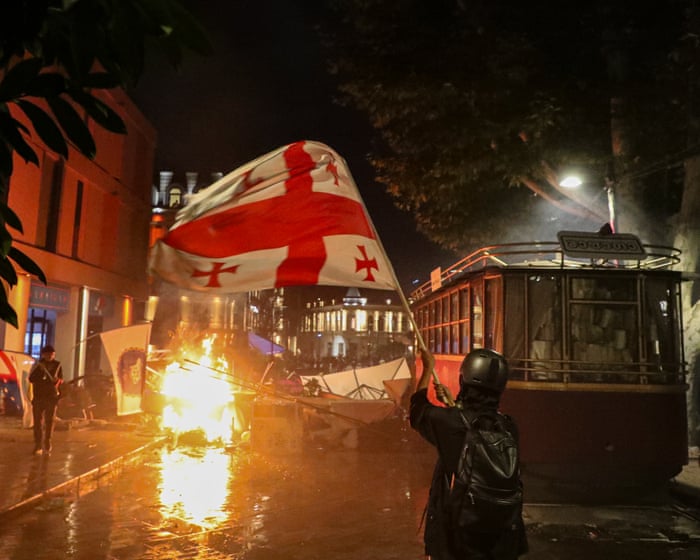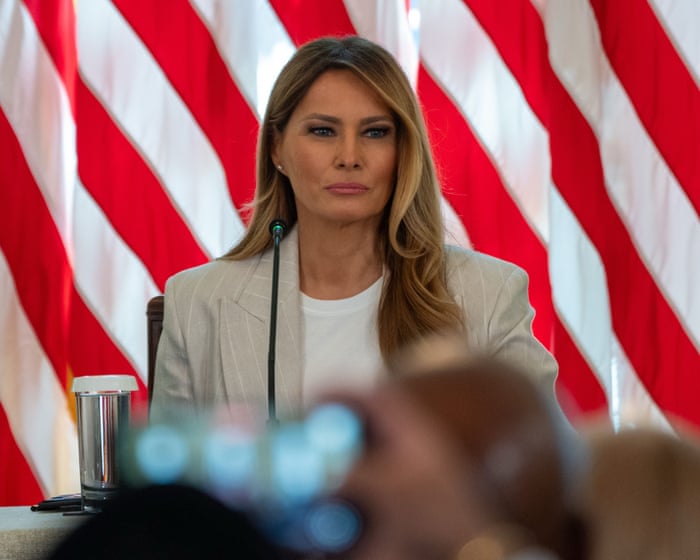Georgia’s Prime Minister, Irakli Kobakhidze, has launched a widespread crackdown on dissent, claiming that protesters who tried to storm the presidential palace were seeking to overthrow his government and accusing the European Union of interfering in the country’s affairs.
Kobakhidze made these allegations a day after demonstrators attempted to breach the presidential palace during local elections. Riot police stopped them using pepper spray and water cannons.
“No one will escape responsibility, including political responsibility,” the prime minister was quoted as saying by the Georgian news agency Interpress.
Police detained at least five protesters, including two members of the United National Movement, the main opposition party, and opera singer-turned-activist Paata Burchuladze.
Local media reported that the health ministry stated 21 security force members and six protesters were injured in clashes in central Tbilisi.
The South Caucasus nation has been in upheaval since Kobakhidze’s ruling Georgian Dream party declared victory in last year’s parliamentary election, which the pro-EU opposition claims was rigged. Since then, talks on Georgia joining the EU have been suspended.
Kobakhidze said up to 7,000 people attended Saturday’s opposition rally, but their “attempt to overthrow the constitutional order” was foiled despite what he described as EU support.
“Several people have already been arrested, primarily the organizers of the attempted overthrow,” he told reporters, adding that the main opposition force “will no longer be allowed to be active in Georgian politics.”
Opposition leaders had called for a “peaceful revolution” against Georgian Dream, which they accuse of being pro-Russian and authoritarian. The party has held power since 2012.
Thousands of protesters gathered in the capital, waving Georgian and EU flags, following months of Kremlin-style raids on independent media, restrictions on civil society, and the detention of numerous opponents and activists. Jailed former president Mikheil Saakashvili had urged supporters to protest on election day, calling it the “last chance” to save Georgian democracy.
Kobakhidze accused the EU’s ambassador to Georgia, Paweł Herczyński, of interference. “You know that specific people from abroad have even expressed direct support for all this, for the announced attempt to overthrow the constitutional order,” he said, noting that Herczyński “bears special responsibility in this context.”
“[Herczyński] should come out, distance himself, and strictly condemn everything happening on the streets of Tbilisi,” Kobakhidze stated.In Tbilisi on Saturday. Photo: Zurab Tsertsvadze/AP
In July, the EU’s diplomatic service dismissed what it described as “disinformation and unfounded claims” about the EU’s supposed involvement in Georgia.
The pro-Western opposition has been holding protests since last October, when the Georgian Dream party won a parliamentary election that opponents allege was fraudulent. The party has denied any vote-rigging accusations. Georgian Dream declared victory in all municipalities across the country of 3.7 million people, in an election that the two main opposition blocs boycotted.
Georgia has enshrined its goal of joining the EU in its constitution and has consistently been one of the most pro-Western nations among the former Soviet republics. Its relations with the West have become tense since Russia’s full-scale invasion of Ukraine in 2022.
Georgian Dream is led by its founder, Bidzina Ivanishvili, the wealthiest person in the country and a former prime minister, and it rejects claims of being pro-Moscow. The party states it aims to join the EU while maintaining peaceful relations with Russia.
This report includes contributions from Reuters and Agence France-Presse.
Frequently Asked Questions
Of course Here is a list of FAQs about the Georgian Prime Ministers declaration of a crackdown on the opposition following protests in Tbilisi designed to be clear and helpful for a general audience
Basic Understanding Context
1 What exactly happened in Tbilisi
There were large public protests in Georgias capital Tbilisi against a proposed foreign agents law The government responded by announcing a crackdown on the opposition groups and individuals it blames for organizing the demonstrations
2 What is the foreign agents law that sparked the protests
Its a proposed law that would require organizations receiving more than 20 of their funding from abroad to register as foreign agents Protesters see it as a repressive tool similar to one used in Russia that would stifle independent media and civil society and harm Georgias goal of joining the European Union
3 Who is the Prime Minister of Georgia
The Prime Minister is Irakli Kobakhidze of the ruling Georgian Dream party
4 What does a crackdown on the opposition mean in practice
This typically involves actions like arresting opposition leaders raiding their offices charging them with crimes and using state resources to discredit and intimidate them
Motivations and Justifications
5 Why is the government doing this
The government states it is acting to uphold the law maintain public order and prevent what it calls foreignbacked unrest and violence It frames the opposition as destabilizing the country
6 What is the oppositions view of the crackdown
The opposition and many protesters see the crackdown as an authoritarian move to silence critics eliminate political competition and move Georgia away from its democratic path toward Europe and closer to Russias sphere of influence
7 How does this relate to Georgia wanting to join the European Union
The EU has made it clear that passing the foreign agents law and cracking down on peaceful protest and opposition is incompatible with European values and would seriously damage Georgias candidacy for membership
Consequences and Implications
8 What has been the immediate impact of the crackdown
It has led to increased political tension more arrests and a deepening divide within Georgian society It has also drawn strong criticism from international partners



